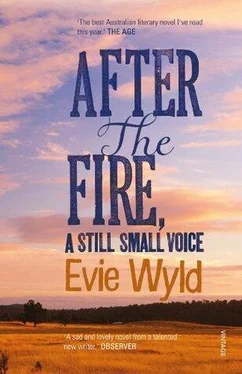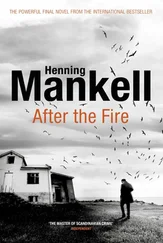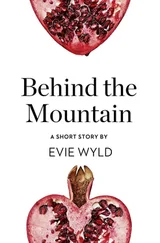Your poor father still wakes sometimes and sometimes there are things he does that he does not remember in the morning.
‘Love, Mum’ was crushed into the corner of the card and there were two kisses, barely visible. The postal stamp was Mulaburry. Leon bit his cheek. He held the camera at arm’s length, looked into the lens and clicked the shutter open. He wouldn’t have time to develop this one before he went north for training, but at least he knew it was there. He wondered if Don Shannon remembered in the morning.
On the day he left the shop, closed up and with a notice on the door that had taken him three goes to figure out — Closed for the Time Being — Mrs Shannon stroked his arm and squeezed it. She didn’t say much more than ‘You’ll be right, kiddo’, but it was strangely draining and he was glad to hand over the keys to her and hop on to his bus. He wondered if Amy was done with being finished yet and where she might be. He would have liked to have sent a message to her but the Blackwells had shut up and moved away not long after she left, and there was nowhere to write to.
At the training compound up in Taroom, a bum-numbing twenty-two hours on a silver bus, they were asked if anyone had any useful experience. Construction workers were needed to renovate the R and R camp in Saigon, cooks and bakers would be especially useful there too. He didn’t know why he didn’t put his name forward and his palms sweated.
The uniform was good, it was a sound thing to see everyone dressed the same. You had a space that you had to keep clean and neat, and a gun that you were taught how to take apart, how to feel for the pieces of it that slotted into each other. It weighed the same as the paddle he used to get bread out of the ovens. A kid called Rod, who looked younger than he said he was, bunked above him. He’d hang his head over his bunk and watch Leon clean his gun, telling him all about his family back home, his sisters and how his father was a big deal in the city. Leon smiled and nodded back, tried on occasion to return a story, which he made up somewhat. It was strange to be so close to other people, all the time. The early mornings and the exercise meant that at night he slept like a stone, and when he woke it was good to see all those neat men with their neat boots and neat hair. After a few weeks, the flesh of his stomach shrank back and he could feel his muscles reaching out underneath his skin. His uniform didn’t feel tight around the middle. He hadn’t realised until he lost it that he’d had a paunch.
When they trained on the automatics the sergeant slapped Leon on the back and said, ‘That’s the kinda shoot we want, Collard. Good one,’ and he felt his chest expand and looked around to see who else had heard.
He borrowed some paper off Rod, who wrote to his parents twice a week, letting them know about all the swell stuff they were up to, how he was bunking with this real character of a guy, how he’d been singled out specifically for his navigational skills.
He leant the paper on his knees and felt oddly formal as he wrote ‘Dear Mother and Father’. He couldn’t remember suddenly if he’d called them something else — Mum and Dad? Had he ever talked to them like this? He might just have said, ‘Hey, you,’ or not spoken to them at all. He felt bad about the next line, ‘I hope this finds you both well’ — was it terrible to ignore that neither one of them sounded well in his mother’s postcards? ‘I have been called to service in Vietnam and am at my training now.’ He would not give the address of the training centre. He wouldn’t like another one of those cards with the cartoon character all Smiley-Dan on the front and a looney message on the back, where anyone could read it. ‘I leave for Saigon in three weeks.’ There was an odd rush when he wrote that. Just writing the word Saigon was like speaking a different language. ‘Mrs Shannon has the keys to the shop and I will of course reopen it on my return.’ He felt carried away with the formality of his voice, but he liked it. ‘Your loving son’, and here he realised he was angry at them both and didn’t sign his name. They’d work it out.
He addressed it to the Mulaburry post office, wherever that was, and sealed the envelope.
When the last three weeks were up, he took a photograph of himself in the toilet mirror, feeling like a wind-up toy. The shape of his face was different, he looked reedy and older. His uniform was crisp against his skin and he held his hat in his hand, squeezed the shape out of it. On the hot bitumen with the planes huge against the sky, he had his photograph taken with Rod.
‘It’s time,’ Rod said then, and they climbed the tin-sounding steps to the Qantas.
The lead-weight feeling of flying was not what he’d expected. He’d imagined a lightness, a small leap in the pit of his stomach, then the feeling a trapeze artist might get. But it was like being underwater, something pushed at his ears, tried to get to his brain. He couldn’t concentrate on any one thing. There was the view out of the window, the upside of the clouds, which he hadn’t considered before. They rolled and moved like live things, they reflected a white light into his eyes.
They levelled above the clouds, and the air and the boom of the engine leant in on his ears, and the freshly shaved skin underneath his nose dried out. He took a photograph out of the cabin window.
There was a fug about the place that was how the air felt around Christmas when you had to make bread and you couldn’t open a window and let in the flies. The first deep breath, coming off the plane in Saigon, he thought he’d swallowed a mouthful of heated air from the engine, but all the air was like that and you had to plough through it. In the back of the truck on the way to the base, they’d passed through all those Vietnamese getting on with their stuff, carrying baskets and cycling, just like you saw in the cartoons about China. They even wore those sun hats, the ones you couldn’t fit through a doorway in. So many people squatted by the road in a way he couldn’t imagine his own ankles allowing, and the smell of fumes was unholy and it tickled the back of his nose like no smell he’d known existed. They stopped in traffic by a roadside vendor where old men perched on their haunches, eating something that looked meaty and sticky.
‘Dirty so-and-sos,’ someone said and everyone laughed. Leon recognised rice. Suddenly there was a school of young women on pushbikes catching up to the truck, each one of them pristine in a white outfit, their hair long and black down their backs. The men shouted and stamped their feet as the girls, without so much as a glance in their direction, overtook the truck like a shoal of fish and carried on their way.
For a week they stayed at the compound to get used to the place. Rod woke up spewing one night and when he went to the medic tent they laughed at him. ‘They just said, that’s life, and told me to drink as much water as I could. But then they said it was the water making me spew.’ He looked at Leon for some sort of support. Leon shrugged and Rod held up his canteen of water as a question.
Sleeping was not so easy in the compound. There was a bird that carried on all through the night, uk-hew uk-hew uk-hew, and after each call he waited in the silence, thinking maybe that was the last one. It seemed to be nested in the tree by the cookhouse, but you could never see it, even though you heard it as though it were right in front of your face. On a night when it was particularly loud, and Rod couldn’t stay still for wanting to spew, they sat watching as a few men tried throwing stones into the tree to scare it off, but the thing was stoic and cried back just as loudly UK-HEW.
‘An’ fuck you too you fucking fuck!’ one man shouted, which seemed to give the bird pause for thought.
Читать дальше












